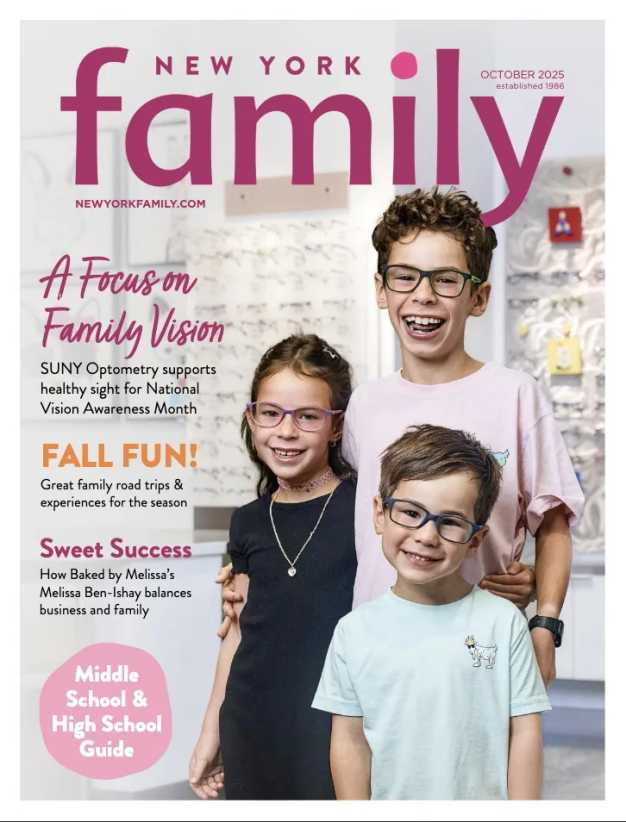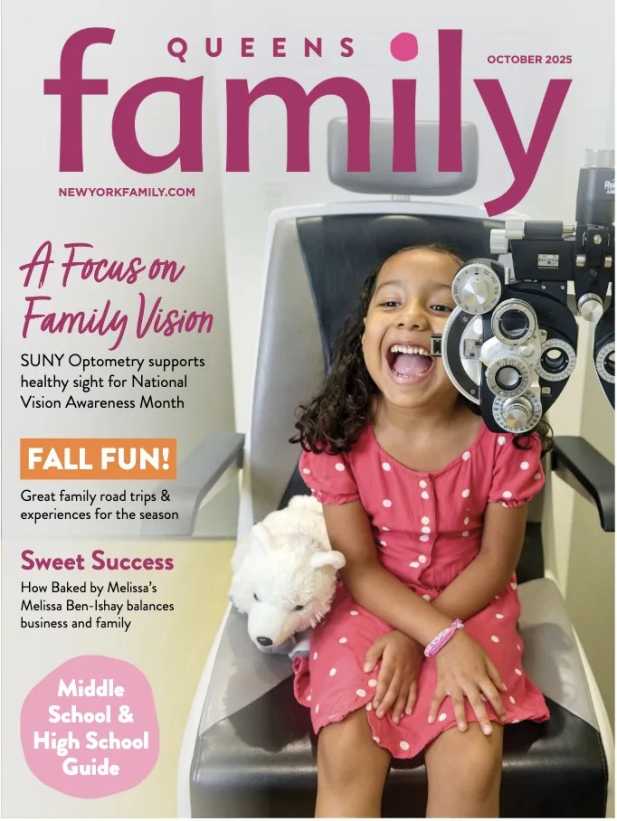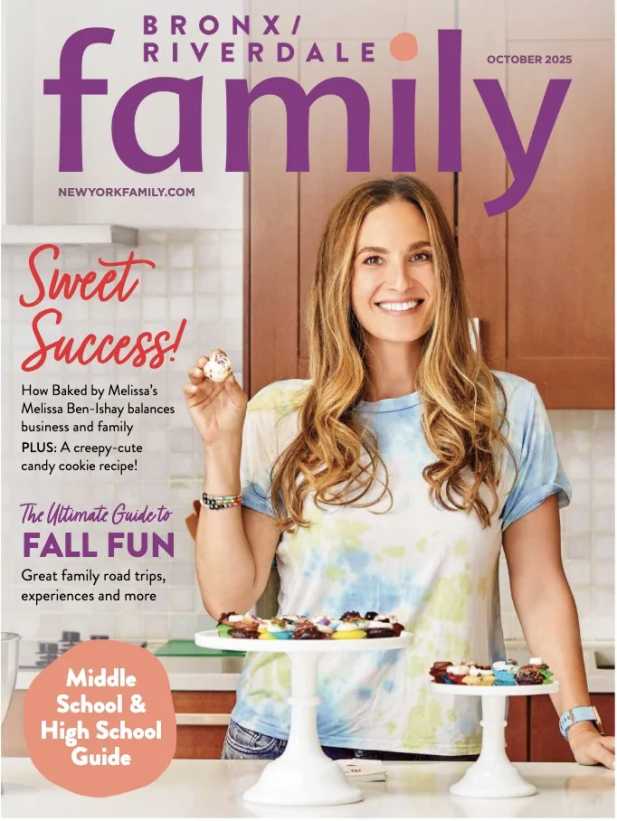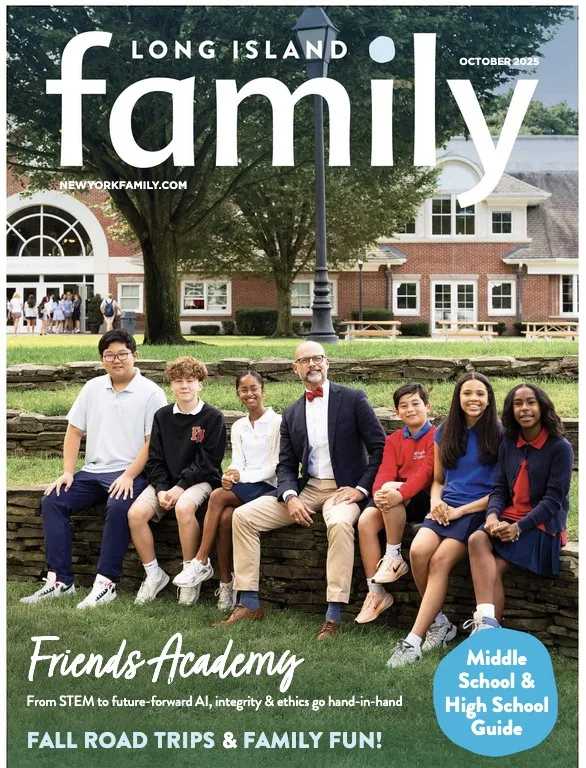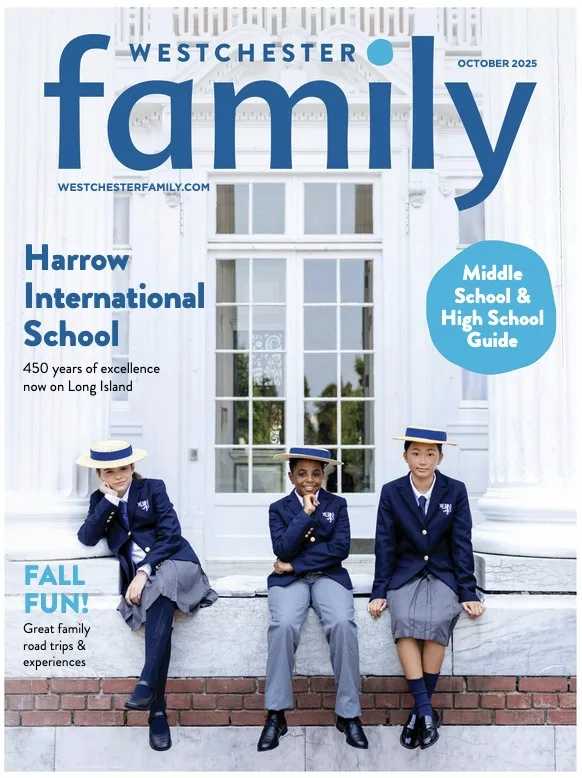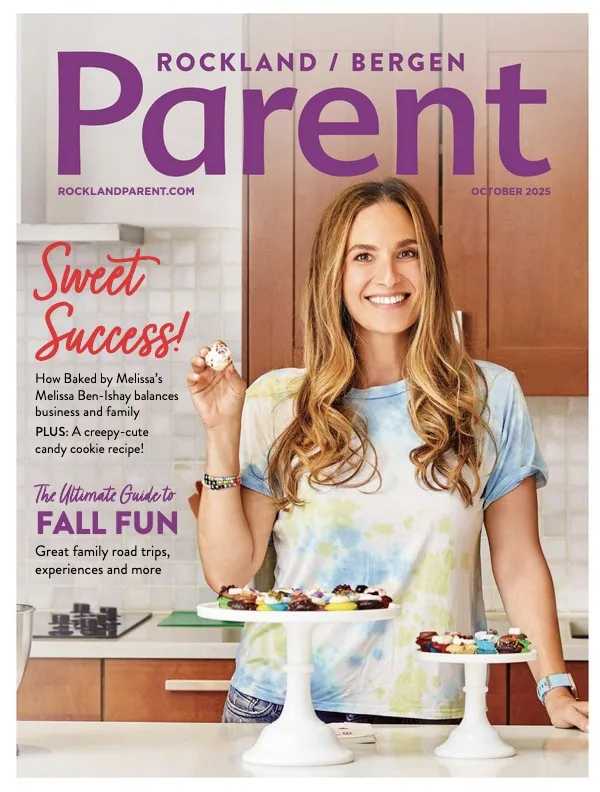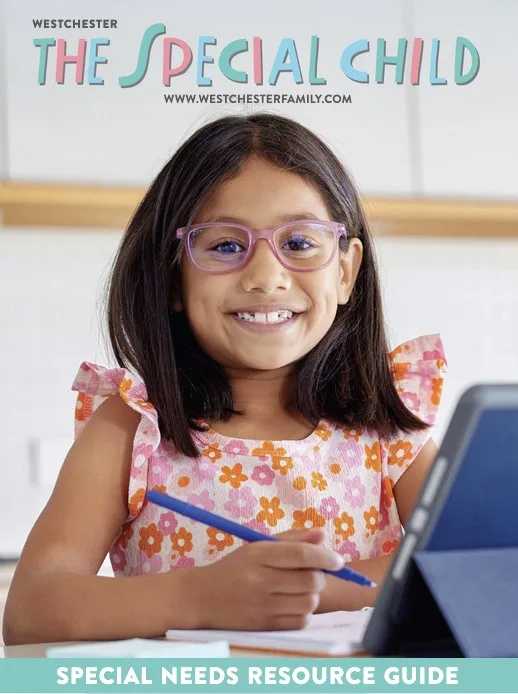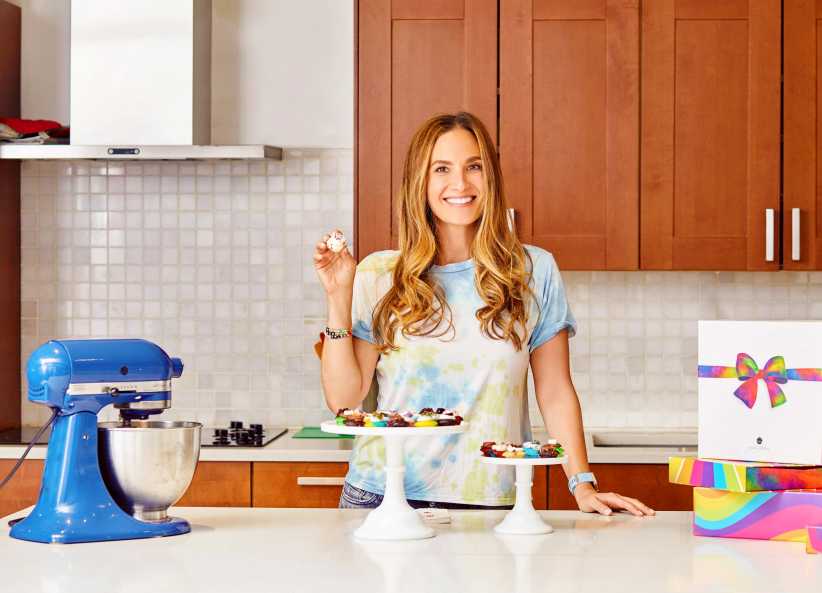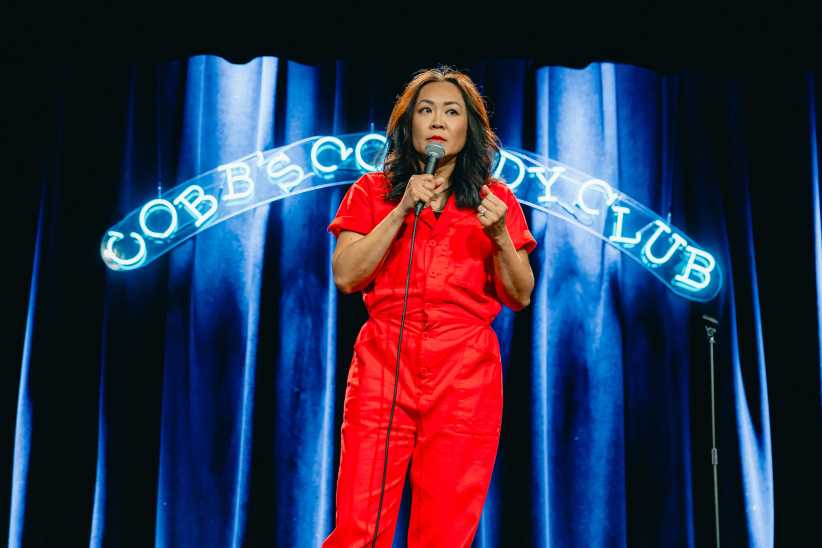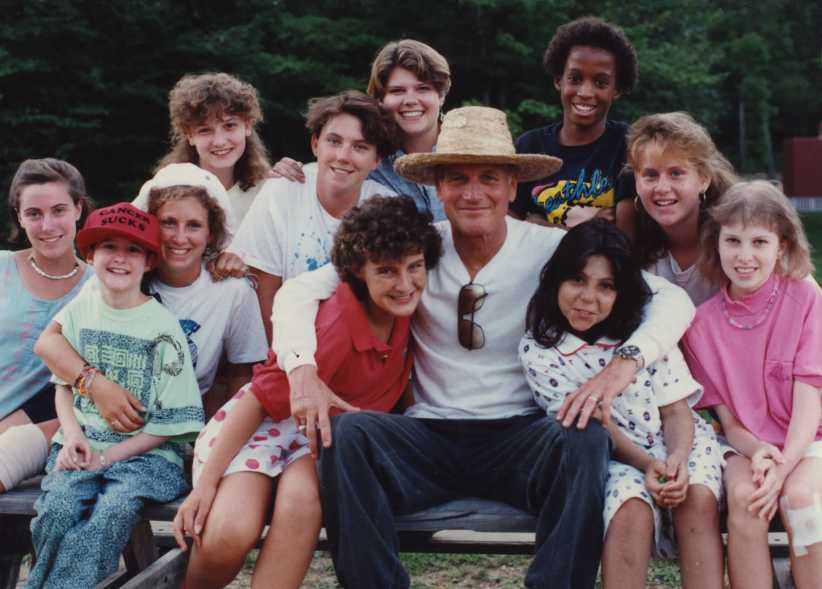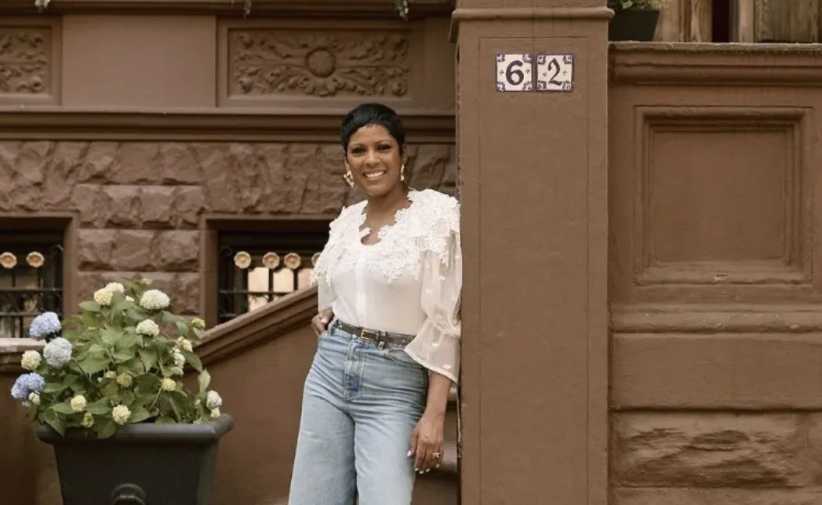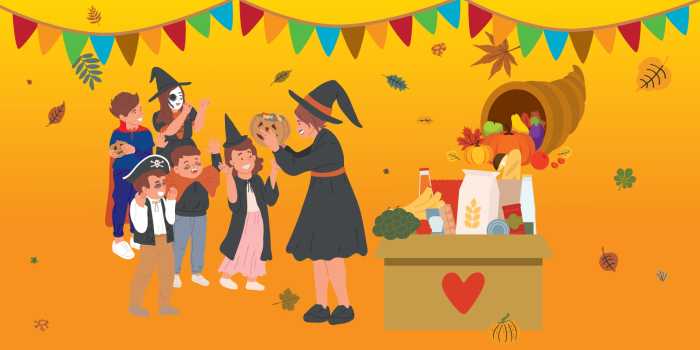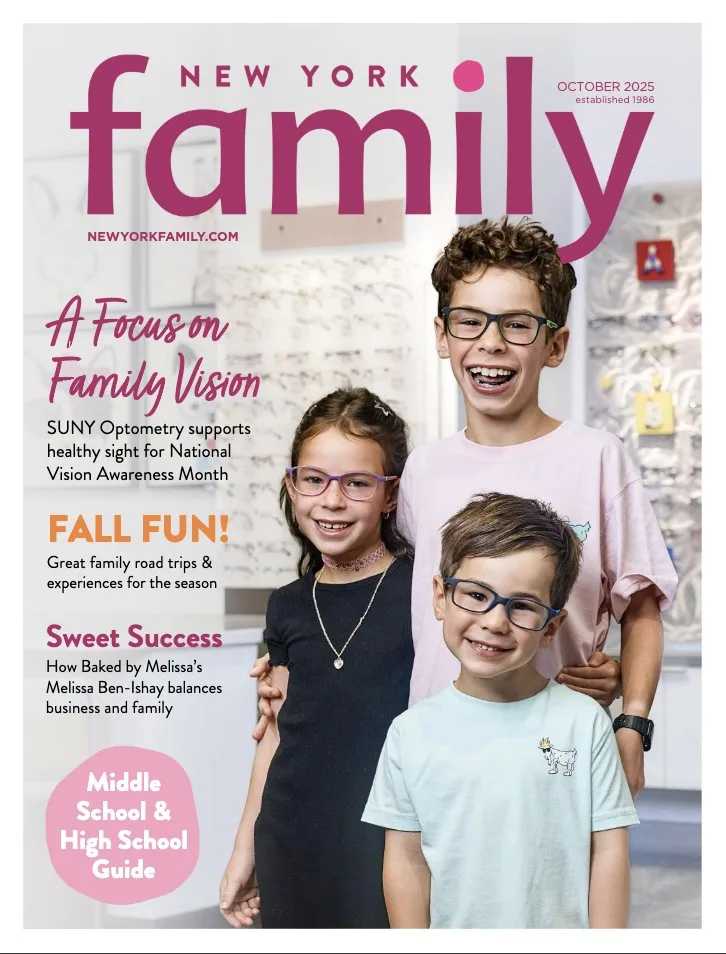
Being one of the hunky stars of “Melrose Place” through much of the 1990s made Andrew Shue famous, but when I met up with him and his television news star of a wife, Amy Robach, for this month’s cover interview, “Melrose” was at the low end of a long list of interesting subjects I hoped to chat with them about (though pop culture zealots can find my contribution to “Melrose” lore in the last question in the interview). In addition to his heyday on TV, Shue has had a number of noteworthy achievements: He has played professional soccer. He co-founded Do Something, the thriving social action organization aimed at youth. He is also one of the visionaries behind CafeMom, which is the most popular chat-based site for moms on the web. As for Robach, she’s no slouch herself on the career front. After a very successful run at NBC News, she’s been one of ABC’s most high-profile news correspondents—and a regular substitute anchor on “Good Morning America“—since joining the network about a year ago.
Theirs was a relatively brief but passionate romance before they married in February of 2010, bringing his three sons (Nate, 16; Aidan, 14; and Wyatt, 9) and her two daughters (Ava, 10, and Annalise, 7) into one very big NYC family. But let’s leave Brady Bunch metaphors out of this story, shall we? Shue and Robach seem like two very smart, thoughtful, loving, fun, ambitious, and, yes, great-looking people, who are growing as parents and partners amid all the stresses that come with being both—not to mention the stresses of their work.
One of the more interesting points of overlap in their professional and personal lives began last November when Shue decided to launch and co-host CafeMom’s enormously popular podcast, Mad Life, in which he and the other two hosts compare notes on the parenting life. One co-host is comedian and father Chuck Nice. The other is an opinionated and articulate and sensible Robach woman, but not the one you might think. It’s Shue’s mother-in-law, Joan!
Sounds like a mad life to me. But please show me a family whose life isn’t.
How did Mad Life come about?
Shue: [Amy and I] were talking about doing a show together, but Amy thought that this was not something she could take on [at the moment]. Then she had the idea, which I thought was genius, that I could have a show with her mom and dig into this whole thing of the crazy lives parents are living today versus the lives parents led thirty years ago.
Robach: My mom is very opinionated. And from a political and parental approach, they’re almost completely opposite. So I figured that it would make for good for television or for good Internet.
What have been some of your favorite moments on Mad Life?
Shue: Amy has come on as a guest a couple times and we did a Mother’s Day…
Robach: That’s boring. I think it’s funny when they talk about sex. When she starts talking about lust, it’s like, wow, did my mom just say the word “lust”?
What else?
Shue: We did an episode where we talked about the things that drive your spouse crazy. And I started crying—I was laughing so hard at the things [about me] that Amy gave Chuck to read.
Robach: Every time we go into a restaurant he has to ask about the bread. He’s very particular about his bread. And the other thing is: every time we go to an Italian restaurant and the waiter is not from New York, Andrew starts doing this fake Italian accent; in a Spanish restaurant, he starts speaking in a Spanish accent. It’s very annoying and embarrassing. He takes on the accent of the place we’re in when we’re ordering.
Shue: Its not annoying, it’s endearing. It’s what you’re going to miss about me when I’m dead and gone.
Andrew, for readers who aren’t familiar with it, what is CafeMom’s niche in the parenting media universe?
Shue: CafeMom is the leading cross platform for moms where you have community and content. Other [parenting] websites are mostly content. But we have millions of moms who are there, literally, to talk. Over a three-month period, we have about half of all moms in the country coming through our doors, 20 million moms.
Amy, you’re a kind of content provider yourself. At this point in your career, do you feel a stronger affinity for reporting or being the person who’s anchoring or hosting?
Robach: I’ve struggled with that because, being an anchor, you get to have command of a show in a way you don’t when you’re a correspondent… And when big breaking news happens and you’re on the set, it’s pretty remarkable. You are the captain of the ship and it’s really exciting. On the other hand, I absolutely love going out reporting and going in deep, asking the tough questions—I love that. So my perfect job is doing both. And at NBC, and now at ABC, I’ve been able to do that. For the last 6 or 7 years, I think I’ve been living a dream.
I can’t think of many jobs as high-wire and demanding as a TV news correspondent. So I want to ask you to discuss the proverbial work-life balance issue.
Robach: It is a constant struggle. For instance, the day of the Newtown shooting, I thought I had a quick 20/20 shoot and I was going to home and see my 10-year-old’s Christmas pageant. Instead, I was driving off to Newtown, and I never left… You feel this tremendous emotion and guilt. So, whenever I can, I take my girls to school and I pick them up from school. Whenever I can, I bring my daughters with me during summer time. I bring them to shoots. I bring them into the studio sometimes. I just find ways to make it up. But it is something I have internal turmoil about constantly, and it gets harder when they get older because they say, “Mommy, please don’t leave.”
When you two met, you both were divorced and had children from your previous marriages. Would you share a bit about what it’s been like to bring your families together into one family?
Robach: I would say that in our case ignorance was bliss. Within five months of meeting we were engaged, within ten months we were married. We met in April of 2009 and were married in February of 2010. The kids always did and still do remarkably well. They get along phenomenally. But with all issues that come with divorce, and then two completely different parenting styles, intellectually I knew it was going to be hard. But I didn’t realize how hard it was going to be until we all actually lived together in the same house.
Shue: Once you make that leap, you’re all in and it’s a crash course in blending everything together…so there’s been a lot of butting heads and then finding the happy medium. The good thing is that the core of what we’ve established has never wavered. You learn all the same stuff that all married people learn. You learn what to fight for and what to let roll off your back. And you remember all the stuff that you love about each other. We try to get out of the weeds sometimes and just pull back and appreciate how freaking lucky we are for what we have.

How do you distinguish between your roles as mom and stepmom, dad and stepdad?
Robach: I try to take the role on as a very close aunt, because I don’t want to be the heavy and I don’t want to take the place of their mom. And yet, when everyone is in your house, and it’s your rules and it’s different than the other parent’s rules. It’s very tricky to navigate. I don’t think we’ve figured it out totally yet. We’re still evolving.
Shue: I think that with time comes trust. In a divorce situation, the kids especially are going to feel afraid that something is going to fall apart. So you do have to be patient with them, build that consistency and that trust, show them that you really care about these relationships.
Robach: And we’ve gotten some help with therapists. Because it’s not something anyone teaches you how to do.
My oldest is almost 13, and some days I feel like I need a new playbook.
Robach: We found a book—my brother found it. It’s called Have a New Kid by Friday. It’s a great book; it’s about not judging and not getting emotional, but setting clear expectations. I agree with everything the writer says, it’s just really hard to do.
At this stage in your family’s life, what are some of the deepest joys and challenges as a parent?
Robach: My deepest joy is their innocent affection and enthusiasm for me and for Andrew and for life. The minute I walk through the door, they scream “Mommy!” I know it’s not going to last, so I’m just soaking it in. I think my greatest challenge is keeping my kids from being bad-talking smart mouths. I think, as a culture, it is unbelievable the way kids talk to each other, to adults, even teachers. I don’t like it. I don’t want my kid to sound like a snarky know-it-all. And I feel it’s the parents’ job to correct it.
How about for you, Andrew?
Shue: When you see your teenagers laughing, you’re feeling really good. When you see them sulking, you feel somehow you’re responsible. I love seeing them laugh. I love seeing them figure stuff out. I think life is so much more challenging than when I was a kid, and when I see them get it on their own, it makes me feel hopeful about the future—and about their future.
As much as we should probably end on that hopeful note, I have one more really important question for both of you. Who was your favorite character on Melrose Place?
Robach: Andrew knows my answer to this. It’s Jake Hanson, played by Grant Show.
Shue: Definitely Alison [played by Courtney Thorne-Smith]. She’s my dream girl.
Robach: She’s still a friend of his in real life. She’s very nice.
Photos By Sarah Merians Photography
Styled By Monica Cotto
Hair By Patrick Alemi
Makeup By Brooke Glaser
